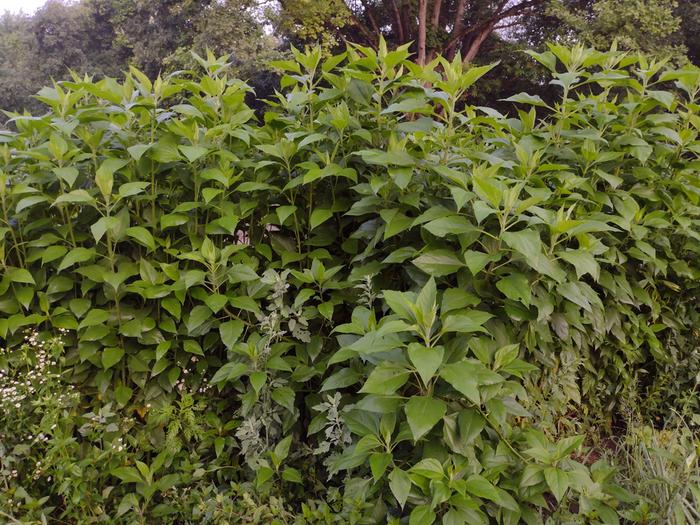posted 2 years ago
Sitting here talking with my wife, I had an idea. If I took mostly mature but not dried out Jerusalem Artichokes (tubers, leaves, and mature blossoms) ground them together, and extruded them as pellets, how decent of a general use complete feed would that be? I know, there's probably too much water from fresh tubers to pellet well, let's say I dried them first. One plant produces me around 10 pounds fresh, 1 ish pounds dry tubers that's around 3,000 calories a dry pound of I estimate right. Mostly starch, some sugar. Add all the green leafs and leaf stems (a pretty stout handful) for fiber, vitamins, and chlorophyll. Add to that the filled out seed heads for protein and fat.
Not sure on the amount of leaves or seeds produced per plant, but if it's enough, I sorta bet it is, that could make a functional one-crop source for an all-stock feed. I could see something like that used as a base feed for goats, cattle, and pigs. Then add your classic kitchen waste, fallen apples, and/or decent pasture. Now that I'm thinking about it, I want to play around. I will see if I can run some better estimates on the nutritional numbers this year. Sounds quite interesting to me . I know the tuber can make up to 50 percent of our animals' diets without problem. I wonder how they'd do with a pelleted, version with added feedstuffs.
IMG_20230717_065301466.jpg

As a farmer, I am a steward of the land and it’s animals.
My job is to feed both people and nature, to build up the world around me.
Farmers are healers of the land and providers of the people.
I will do my best to keep a clean and healthy environment that would be pleasing to God


